Exhibit Guide Home
Exhibits
Introduction
Founding Generation
Founding Documents
You
Be the Judge
Defining Freedom
The Struggle Continues
Faces
of Freedom
Marketplace of Ideas
Censorship: What Is It?
Musical Hit List
Draw
the Line
Resources
Museum Map
Glossary
|

Shaping the foundation of the freedoms we enjoy
today was no easy task. Members of the founding
generation had varying viewpoints on the rights
and limits of freedom. They fiercely debated
these ideas for hours in meetings and wrote
hundreds of essays and letters expressing their
opinions. It was an environment where ideas were
expressed, debated, rejected and adopted as the
Founders shaped the Declaration of Independence,
Constitution and Bill of Rights.
The founders categorized themselves into two
different groups known as the
Federalists and
Anti-Federalists. These
groups were defined by their political views and
evolved into the modern day party system that we
have today in U.S. politics.
The Federalists supported the Constitution and
believed in a centralized government with some
checks and balances, and some powers reserved
for the states. The Anti-Federalists were
against the Constitution because they felt it
threatened instead of protected individual
liberties.
Come meet some of the men and women who helped
us develop our ideas of freedom and democracy.
The founders didn’t always agree with each other
even among others in their own party. Our
founding documents and the freedoms we enjoy
today were the result of struggle, debate and
compromise. It’s a legacy that carries into the
modern day as we continue to debate what our
freedoms mean.
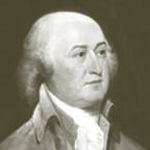
|
John Adams
John Adams was a
forceful
advocate for
independence in
the Continental
Congress and was
a member of the
committee to
draft the
Declaration of
Independence. He
drafted the
Massachusetts
state
constitution—the
oldest written
constitution in
the world.
Learn more
back to top
|
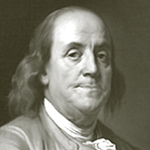 |
Benjamin
Franklin
Benjamin
Franklin was a
delegate to the
Continental
Congress and
edited Thomas
Jefferson’s
draft of the
Declaration of
Independence.
Franklin
submitted a plan
that also
heavily
influenced the
writing of
Articles of
Confederation.
Learn more
back to top
|
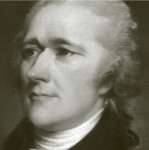 |
Alexander
Hamilton
After the
Revolutionary
War, Alexander
Hamilton pushed
for a strong
national
government and
was a delegate
to the
Constitutional
Convention.
Hamilton was one
of the authors
of the
Federalist
Papers which
urged the
ratification of
the
Constitution.
Learn more
back to top
|
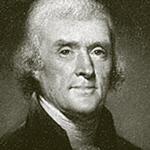 |
Thomas
Jefferson
As author of the
Declaration of
Independence,
Thomas Jefferson
gave ringing
words to ideas
about
inalienable
rights and the
consent of the
governed. After
the Constitution
was ratified,
Jefferson became
one of the
leaders of the
Democratic-Republican
party and was
elected the
nation’s third
president.
Learn more
back to top
|
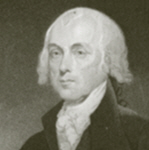 |
James
Madison
The principal
author of the
Constitution and
Bill of Rights,
Madison, a
federalist, did
not initially
believe a bill
of rights was
necessary.
Learn more
back to top
|
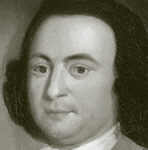 |
George Mason
George Mason was
author of the
Virginia
Declaration of
Rights, which
was the first
state bill of
rights. It later
became a model
for the Bill of
Rights.
Learn more
back to top
|
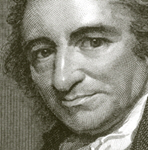 |
Thomas Paine
Thomas Paine was
a best-selling
author who set
forth the
American cause
for independence
through his
writing. Paine
published
Common Sense
in January of
1776, and later
The
American Crisis,
a series of
pamphlets meant
to bolster
colonial morale
from 1776-1783.
Learn more
back to top
|
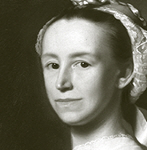 |
Mercy Otis
Warren
Mercy Otis
Warren was a
prolific writer
about
revolutionary
politics and
wrote an
anonymous
pamphlet
fervently
opposing the
ratification of
the Constitution
without a bill
of rights.
Warren’s widely
published
writings helped
plant the seeds
for the American
Revolution.
Learn more
back to top
|
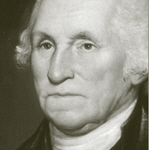 |
George
Washington
George
Washington led
the Continental
Army while the
Declaration of
Independence was
being drafted.
Washington was
elected
president of the
Constitutional
Convention, and
was unanimously
elected the
nation’s first
President.
Learn more
back to top
|
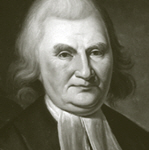 |
John
Witherspoon
A prominent
theologian and
president of
Princeton
University, John
Witherspoon was
a signer of the
Declaration of
Independence.
Learn more
back to top
|
<< Previous Section
Next section >>
|
Onboard the
Freedom Express

At this exhibit, visitors
can listen to
members of the
founding
generation
debate whether or not a
Bill of Rights
should be added
to the U.S.
Constitution.
|
|
![]()
![]()